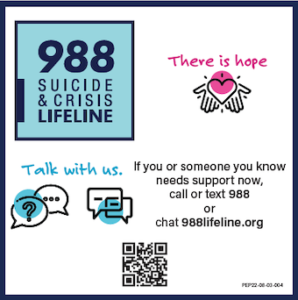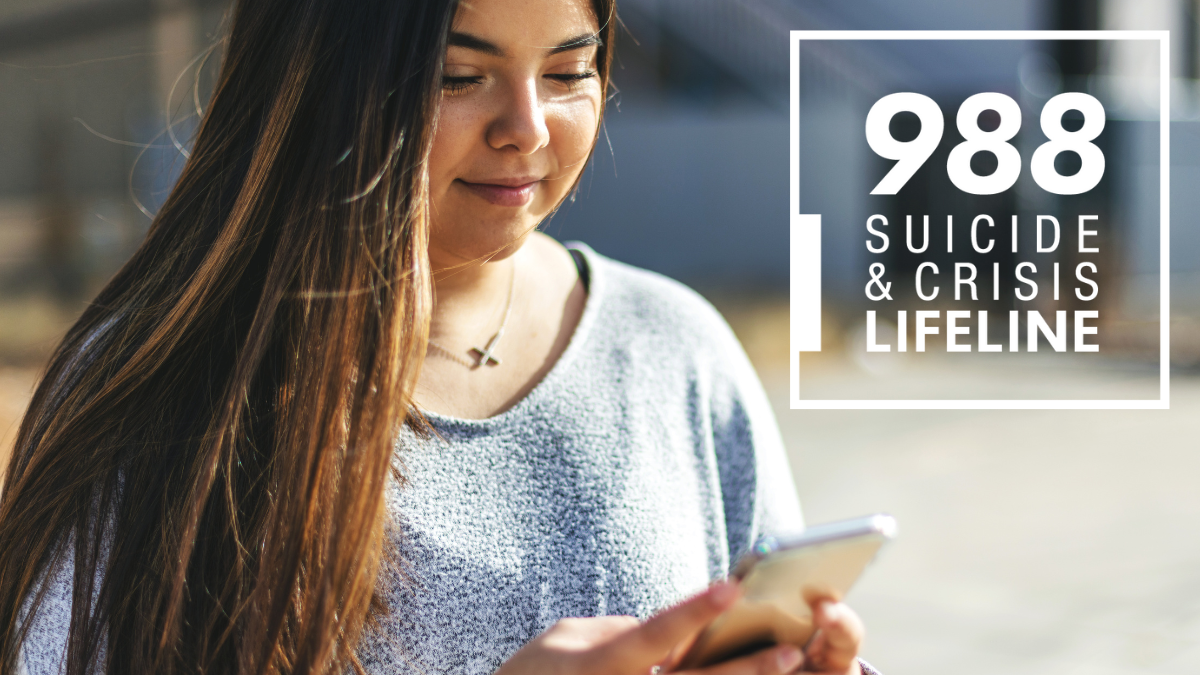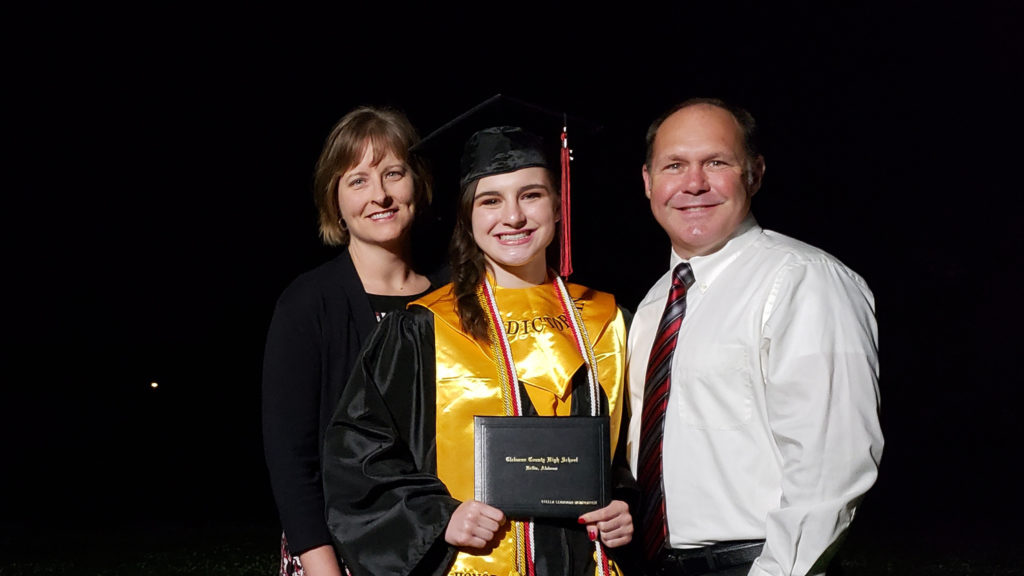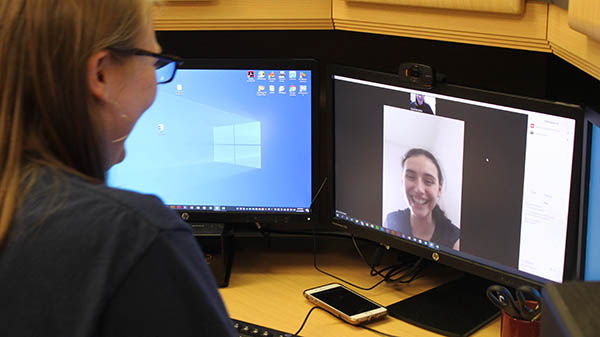Young adults in the U.S. are increasingly affected by anxiety and depression as rates rise among all age groups. Efforts to combat the epidemic include a new national 988 crisis number and increased efforts by faith-based leaders to engage students on college campuses.
In 2020 alone, the U.S. had one death by suicide about every 11 minutes, according to the Substance Abuse and Mental Health Services Administration of the U.S. Department of Health and Human Services. For people age 10–34 years, suicide is a leading cause of death, and from April 2020 to 2021, over 100,000 individuals died from drug overdoses.

The 988 Lifeline, which debuted nationwide July 16, is one way to help.
Like the 911 dialing code for emergencies, the 988 dialing code connects callers immediately to the existing National Suicide Prevention Lifeline. People also can text 988 or chat with someone at 988lifeline.org.
24/7 help
The Lifeline is staffed 24/7 with care and support professionals trained in assisting an individual experiencing mental health-related distress, whether that’s thoughts of suicide, emotional distress or another mental health or substance use crisis. People also can dial 988 if they are worried about a loved one who may need crisis support.
In 2021, the Lifeline received 3.6 million calls, chats and texts. That number is expected to at least double within the first full year after the 988 transition, DHS officials predict.
The push now is to make people aware of the new code, DHS officials said, including those who work with high school and college students on a regular basis, like faith-based campus leaders, who are increasingly seeing connections between faith and mental health.
On Ivy League campuses, large public institutions and faith-based colleges, chaplains and psychologists are teaming up, informed by abundant research showing religion and spirituality can ease mental distress by providing group support and boosting personal resilience.
‘Good partners’
“We’re good partners, and routinely refer back and forth,” said Calvin Chin, Princeton University’s director of counseling and psychological services, which a third of students use.
“We’re really thinking holistically about how to support a student, what they need to lead successful and satisfying lives.”
The need is indeed critical. In December 2021, halfway through the first academic year when most colleges returned to in-person instruction, the U.S. surgeon general issued an advisory on the country’s youth mental health crisis. It found everything from sadness to suicide plans increased by more than 40% in the decade before COVID-19 — and that the pandemic’s further impact was “devastating.”
Counselors are seeing distress become more widespread and more severe — particularly anxiety, which overtook stress and depression among students, according to the Association for University and College Counseling Center Directors.
‘Overwhelmed’
“Our faculty say … students seem much more overwhelmed, to be carrying a lot more anxiety,” especially about coping with demands and social interactions, said Cindy Bruns, director of counseling and licensed psychologist at Central Washington University.
Even before the pandemic, despair seemed to mark Generation Z, whose members were born roughly between 1997 and 2012.
“Students were no longer asking me, ‘How should I live?’ They started asking me, ‘Why should I live?’” said Varun Soni, dean of religious life at the University of Southern California, home to 50,000 enrolled students. “They were so desperate to be with each other within a context of meaning-making, that suddenly religious and spiritual life boomed in the fall.”
“We had 250 kids come out to pet two therapy dogs. We normally get 20 kids,” Soni said.
Therapy and spirituality
Many experts argue that therapy should assess students’ engagement with spirituality as an overall part of their identity. It would help uncover potential coping mechanisms, said David Hodge, professor in the school of social work at Arizona State University.
Charis Davidson, a professor and public health researcher at Mercy College, said her studies have found that collaborations between campus ministry and counseling are still “definitely the exception” at public universities, but that the current crisis might bring more together.
For more information on the 988 mental health crisis line, click here. (Carrie Brown McWhorter, with reporting by Religion News Service)






Share with others: